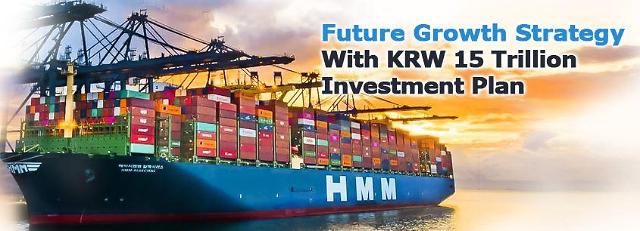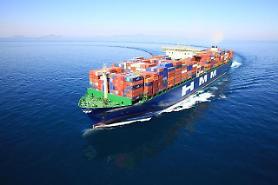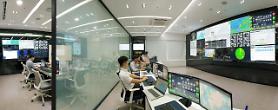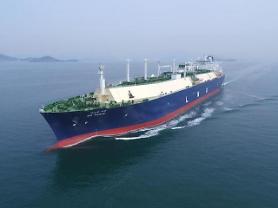
[Courtesy of HMM]
"There is no need to sell HMM right now like Daewoo Shipbuilding & Marine Engineering (DSME)," Oceans and Fisheries Minister Cho Seung-hwan said, drawing a clear line between HMM and DSME, which are under control by Korea Development Bank (KDB), a state policy bank which has played a crucial role in the restructuring of the two debt-stricken companies.
South Korea's Hanwha Group was picked as the potential owner of DSME on September 27 in a preliminary deal to acquire a 49.3 percent stake and management rights, 14 years after its first bid for the troubled shipbuilder was aborted by a global financial crisis in 2008. KDB controls a 55.7 percent stake in the Daewoo shipyard.
Afterward, market attention shifted to HMM because Cho came up with the idea of selling HMM to a private manager, citing the accumulation of profits, in a report to President Yoon Suk-yeol in August. KDB is the largest shareholder of HMM with 20.69 percent. The stake held by public institutions, including KDB, stands at 45.67 percent, but it will go up to 74 percent when convertible bonds and bonds with warrants are converted into stocks.
"The principle of HMM's privatization is clear, but we are cautious on its timing," Cho told reporters on September 28. "The timing and form of their sale should be discussed differently depending on each company's value and business environment."
Helped by a rise in international freight rates and improved competitiveness, South Korea's shipping industry has achieved a high-efficiency, low-cost structure through years of painful restructuring coupled with a government relief package that began in early 2017 when Hanjin Shipping, which used to be the country's top container carrier, terminated its 40-year-long business due to falling freight rates and a protracted slump.
HMM, formerly known as Hyundai Merchant Marine, has enhanced its international competitiveness and profitability through corporate management innovation and restructuring. The shipper turned a profit in the second quarter of 2020, ending a 10-year-long deficit through financial support, and restructuring. It posted an operating profit of 3.1 trillion won in the first quarter of 2022.
Despite its good cash flow and cash reserve ratio, Cho thinks that HMM has yet to make up for accumulated losses before normalization: "It will take a few years to fully normalize," Cho said, predicting that shipping fares will stabilize downward due to a decrease in the volume of cargo and a global economic slowdown. "HMM's priority is to have sufficient competitiveness," he said, stressing that the shipper should not be sold to any foreign companies or private equity funds.
"What is clear is that we will not sell it to foreign companies and private equity funds," Cho said. "The sale should comprehensively consider cash holdings and stock prices, not just shipping fares."
Copyright ⓒ Aju Press All rights reserved.



